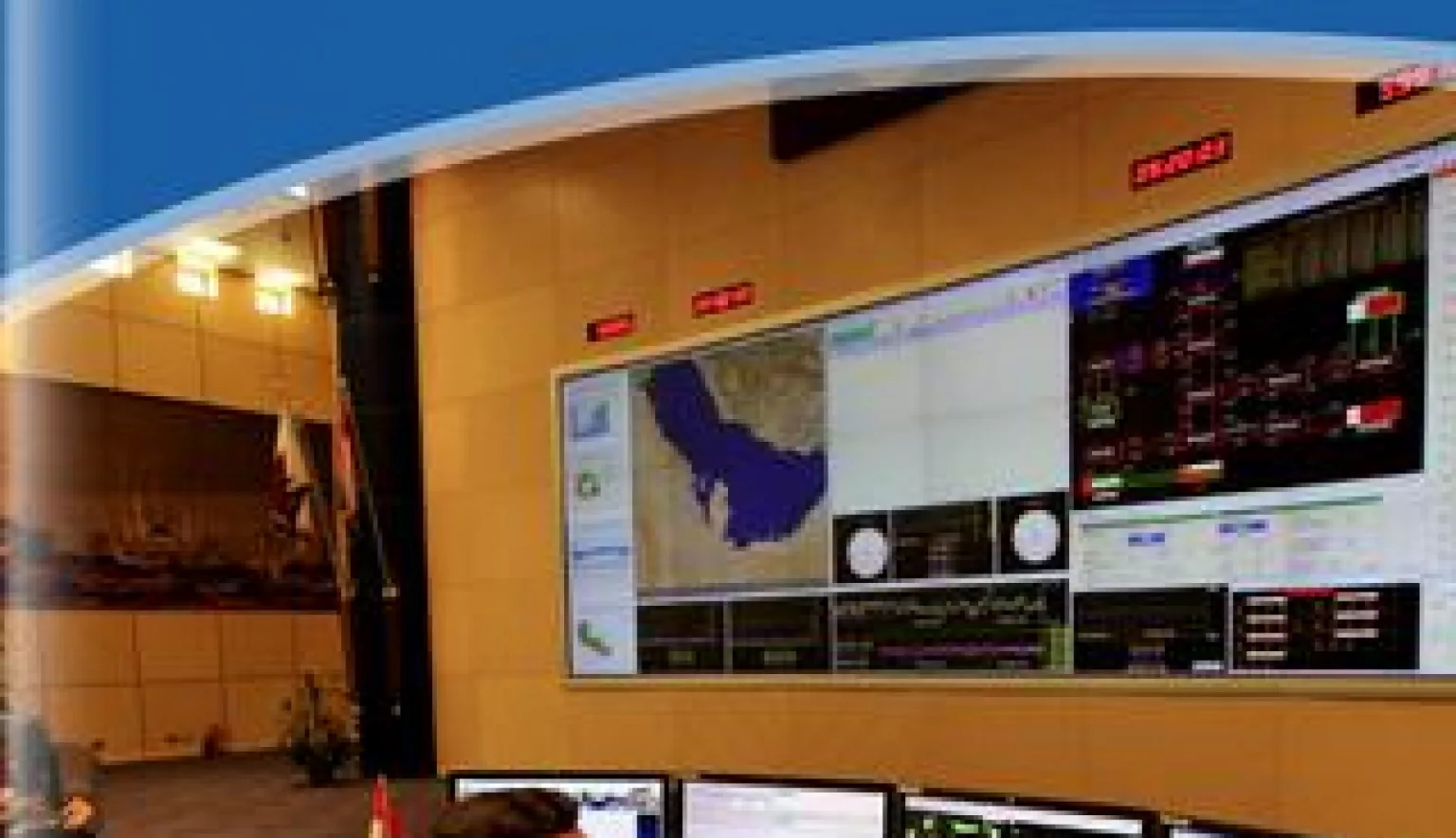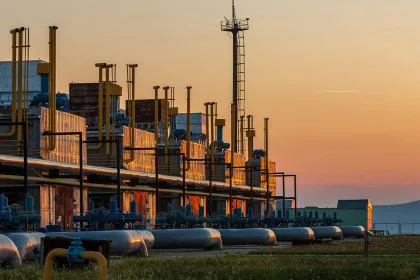The GCC Interconnection Authority is inspired by the principles of the Gulf Cooperation Council, tackling the need to foster links in trade.
INTERCONNECTING OUR WORLD
As a result of the economic agreements between the Gulf Cooperation Council (GCC) States – signed by their Majesties and Highnesses – in 1981, a collective of committees were formed to administer and implement the power grid.
The idea of creating the power grid was fully conceived in 1986, at which point a study was conducted by a committee from the GCC countries in cooperation with the Kuwait Research Institute and King Fahd University of Petroleum and Minerals.
“The GCC Committee recognised the technical benefits of the project and undertook a feasibility update study in 1990, collaborating with the Gulf Investment Bank and Canadian based SNC-Lavalin,” explains Ahmed Al Ebrahim, Chief Executive Officer at GCC Interconnection Authority. “This enabled us to determine the viability of our projects from both an economical and financial perspective, which inevitably led to the establishment of the GCC Interconnection Authority (GCCIA).”
Established in 2001, the Authority is a joint stock entity, owned by the six GCC member states with an authorised share capital of $1.4 billion and 1,100 shares divided across all states based on the general production.
Al Ebrahim continues: “Our board of directors is made up of 12 members, comprising two members from each state. The executive level is headed by myself, and supported by three deputies: Chief Network Officer, Chief Operating Officer and Chief Business Support Officer.
“The Authority is made up of numerous levels, which include system operations, maintenance and asset management, market operations, telecommunication and an array of supporting functions such as finance, MIS, talent management and lastly strategy and business development.”
More than 10 years later, the market operations function was introduced and in 2013, a strategy & business development department was created in order to focus on the plans of the authority and management performance.
LONG-TERM STRATEGY
The Authority has worked tremendously hard since fruition to ensure it is consistently achieving its goals. In 2012 it embarked on a five-year long-term strategy in which there were eight strategic themes, comprising increased value for shareholders, increased revenue streams, expanding service offerings, achieving long-term growth, influence policy, enabling service delivery, attracting, retaining and developing human capital and developing a foster culture.
“We have accomplished numerous successful initiatives over the years, all of which have been accomplished with relative ease,” affirms Al Ebrahim. “Some of these initiatives included the leading of the fibre optic cables with telecom companies, resulting in new revenue streams for us to branch into.
“We have also provided consulting services to regional utilities on various projects over the years, seeking out new routes that would enable us to expand the current power grid beyond the region.
“On the human-scale, I would say that GCCIA has been successful in the creation of a friendly working environment in which we can achieve success on these initiatives; introducing several programmes and activities that encourage organisational interaction.”
At GCCIA, the Company’s vision is to serve the GCC countries and beyond through leading the development of an efficient power market, while providing knowledge excellence in power systems integration.
“It is our aim to achieve a power market in the region, a project that is currently taking place,” adds Al Ebrahim. “While this is constantly at the forefront of our minds here at GCCIA, we are also pursuing various opportunities that will link the power grid with neighbouring power systems. These systems include Kuwait, Iraq and signed MoU’s with Jordan, Yemen and Ethiopia.
“Other significant projects that are currently under development include the power storage project – a joint project with a regional utility – and as we speak we are implementing a quality management system to ensure all processes are up to the standard we hope to reach, in pursuit of attaining ISO 9001 certification.”
PREFERRED EMPLOYER
As previously mentioned, at GCCIA there is a huge emphasis placed on human capital. Not only is the Company keen on hiring highly qualified talent, but also remain ardent on retaining them.
In its current five-year strategy, there is one strategy in particular that stands out: the mission to become the preferred employer in the region – within the power sector – which truly highlights the importance of attracting the best industry talent, achieved by being the recognisably preferred employer in the region.
Al Ebrahim continues: “We are then able to retain them by supporting their professional development, working with each employee on a case-by-case basis and creating a structured training and career development programme.”
GROWING DEMAND
With thanks to the growing demand for renewable energy in the GCC region at present, the GCCIA is eagerly working to expand its line of service through investing in the renewables business, such as solar farms, electrical vehicles and the growing need for cyber security.
“We are unique in the fact that the GCCIA is the first organisation to be jointly created by the six GCC member states, providing a highly successful outcome that included the cooperation council and its economic agreement from 1981,” adds the CEO. “We are also able to distinguish ourselves on a global level through our topology, consisting of two basic types that join in the common link, known as a ‘hybrid link’.”
The hybrid link will be the way in which all countries are provided with direct access to any other system, with the exception of Oman, which will still require all transactions with the other five GCC countries in order to use the power system.
“We stand as truly unique with our model of Hybrid Common Neighbour-to-Neighbour link, as such a structure doesn’t exist anywhere else in the world and we believe that this will have a significant role in reshaping energy policies on a regional and global scale,” explains Al Ebrahim. “During the remainder of this year, we will revisit our long-term strategy in order to shift our focus to new trends and areas of interest for the next decade.”




























